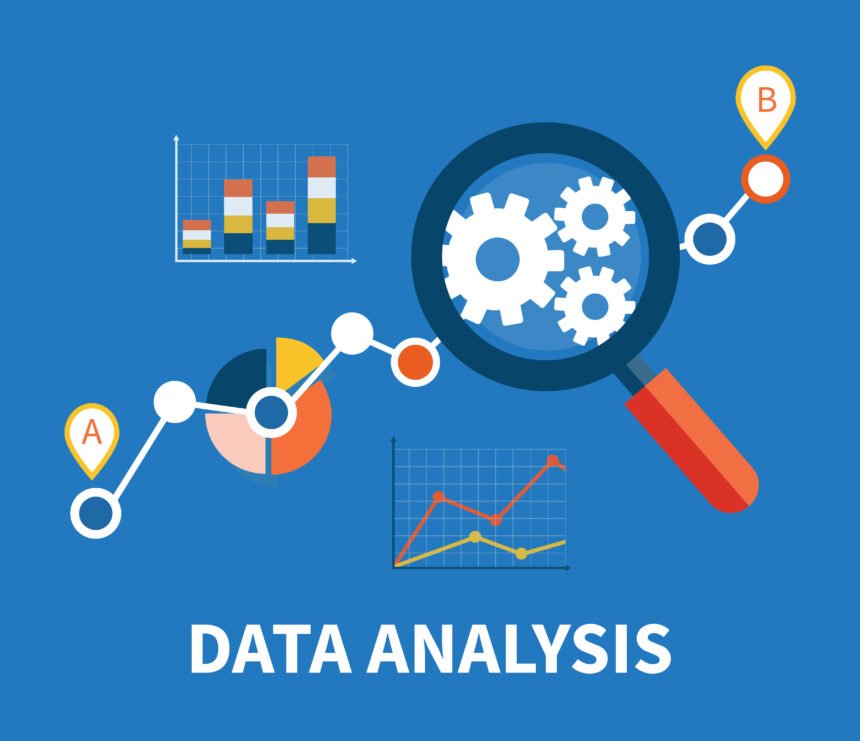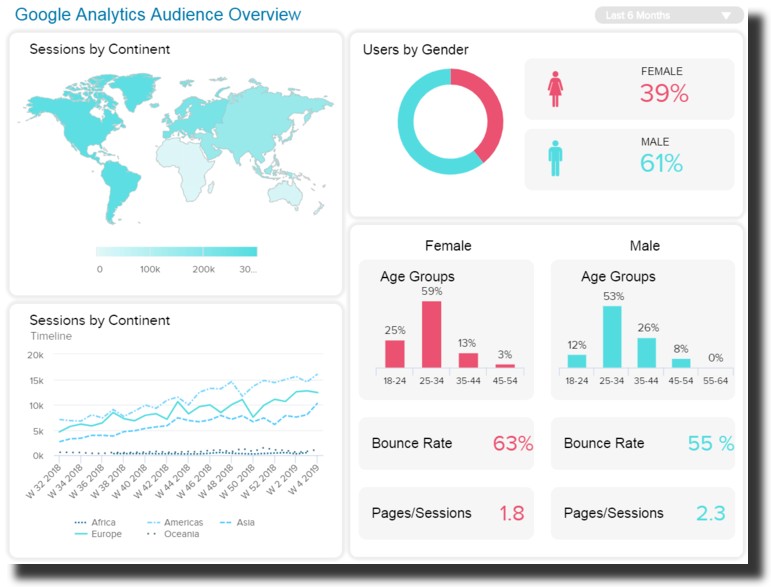Take advantage of the Power of Big Data with Innovative Analytics Solutions
Take advantage of the Power of Big Data with Innovative Analytics Solutions
Blog Article
Boost Performance and Success Via Information Analytics
In today's data-driven landscape, services are significantly recognizing the critical function of information analytics in enhancing functional performance and success. By systematically assessing data, companies can uncover critical understandings that notify tactical decisions, simplify procedures, and tailor customer experiences.
Recognizing Data Analytics
In today's data-driven landscape, recognizing information analytics is important for organizations intending to boost functional effectiveness and drive productivity. Data analytics involves the organized computational analysis of information collections to reveal patterns, connections, and insights that notify decision-making. By utilizing numerous strategies, such as statistical analysis, artificial intelligence, and anticipating modeling, organizations can transform raw information into workable knowledge.
The process generally starts with information collection, where pertinent details is gathered from multiple sources, including transactional data sources, client communications, and market fads. This information is then cleansed and organized to ensure accuracy and uniformity. Once the data is prepared, analytical tools and software are used to check out and envision the info, making it possible for stakeholders to determine abnormalities and patterns.
Ultimately, understanding information analytics empowers organizations to make enlightened decisions based on empirical proof as opposed to intuition. It facilitates targeted approaches that can maximize resource allocation, improve consumer fulfillment, and boost total performance. As companies progressively recognize the value of data-driven insights, a strong understanding of data analytics comes to be an essential competency for groups and leaders alike, positioning them for sustained success in an affordable atmosphere.

Key Benefits for Services
Organizations that leverage information analytics can open a plethora of advantages that considerably enhance their procedures and success. One of the primary advantages is enhanced decision-making. Information analytics offers workable understandings derived from real-time data, enabling services to make enlightened choices that line up with market needs and consumer choices.

Furthermore, data analytics fosters improved customer experiences. By recognizing customer habits and choices, services can customize their offerings, bring about enhanced fulfillment and commitment. This individualized strategy typically causes greater conversion prices and repeat company.
Furthermore, data analytics makes it possible for organizations to recognize arising chances and patterns. By staying ahead of the contour, companies can profit from new markets and technologies prior to their competitors.
Carrying Out Data-Driven Methods
Effective implementation of data-driven approaches needs an extensive understanding of both organizational objectives and offered information sources. Organizations needs to first specify their objectives clearly, ensuring alignment in between information efforts and visit calculated goals. This clarity makes it possible for teams to concentrate on relevant metrics and insights that drive decision-making.
Premium information is necessary for exact analysis, as poor information can lead to illinformed techniques and thrown away resources - Analytics. Organizations needs to establish processes for information collection, cleansing, and management to maintain information stability.
Moreover, promoting a data-driven society is essential. Workers whatsoever levels should be encouraged to take advantage of information in their everyday operations. Educating programs and workshops can enhance information literacy, encouraging staff to make educated decisions based on logical insights.
Tools and Technologies Summary
A robust collection of technologies and devices is essential for organizations aiming to harness the complete capacity of data analytics. These devices read this help with the collection, processing, and visualization of data, making it possible for companies to obtain actionable understandings.
At the fundamental degree, information monitoring systems such as SQL databases and NoSQL systems supply effective information storage and retrieval abilities. For data processing and evaluation, programming languages like Python and R, together with frameworks such as Apache Glow, enable intricate calculations and artificial intelligence applications.
Visualization tools, consisting of Tableau and Power BI, transform raw data into instinctive graphical styles, making understandings easily accessible to stakeholders in any way degrees. Furthermore, cloud-based systems like Google Cloud and AWS supply scalable storage space and handling solutions, accommodating the growing quantities of information companies experience.
For sophisticated analytics, anticipating modeling and AI-driven services are increasingly taken on, permitting firms to anticipate trends and boost decision-making procedures. Incorporating these tools into existing process is critical; companies that efficiently utilize this technology can considerably boost functional efficiency and drive success. Therefore, purchasing the right devices and innovations is a critical crucial for any kind of data-driven organization.
Instance Studies of Success
Leveraging information analytics has led various companies to attain exceptional enhancements in efficiency and success. One significant case is a big retail chain that executed anticipating analytics to enhance stock administration. By evaluating historic sales data and consumer trends, the company reduced excess inventory by 30%, causing significant cost savings and improved capital.
An additional instance can be found in the manufacturing field, where a leading automotive maker made use of data analytics to boost its my explanation manufacturing processes. By keeping track of equipment efficiency in real-time, the company recognized bottlenecks and inefficiencies, causing a 20% rise in total tools performance (OEE) This not just increased production rates but additionally minimized downtime and upkeep costs.

These case studies illustrate how information analytics can drive calculated decision-making, enhance processes, and inevitably enhance both performance and productivity across different industries.
Final Thought
In verdict, the integration of data analytics right into business procedures presents substantial possibilities for enhancing effectiveness and earnings. By methodically examining information, companies can determine inadequacies, enhance client experiences, and make educated decisions.
In today's data-driven landscape, comprehending information analytics is necessary for companies intending to boost operational efficiency and drive productivity. Data analytics involves the methodical computational analysis of information sets to discover patterns, connections, and insights that inform decision-making. Information analytics offers workable understandings derived from real-time information, allowing organizations to make educated selections that straighten with market needs and customer choices.
High-grade data is essential for exact analysis, as bad data can lead to misguided methods and thrown away sources. Organizations should develop processes for data collection, cleansing, and monitoring to keep information stability.
Report this page